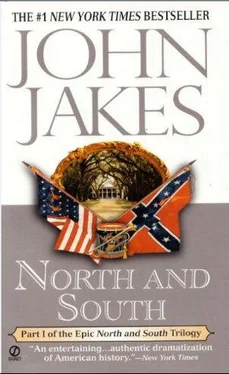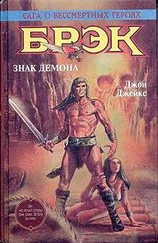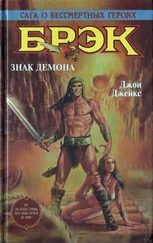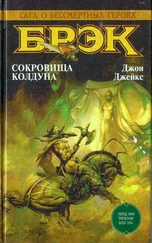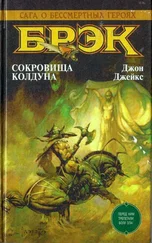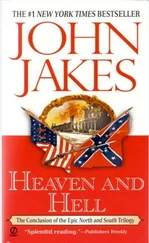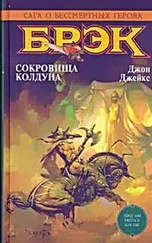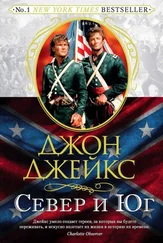Джон Джейкс - North and South
Здесь есть возможность читать онлайн «Джон Джейкс - North and South» весь текст электронной книги совершенно бесплатно (целиком полную версию без сокращений). В некоторых случаях можно слушать аудио, скачать через торрент в формате fb2 и присутствует краткое содержание. Жанр: Исторические приключения, на английском языке. Описание произведения, (предисловие) а так же отзывы посетителей доступны на портале библиотеки ЛибКат.
- Название:North and South
- Автор:
- Жанр:
- Год:неизвестен
- ISBN:нет данных
- Рейтинг книги:5 / 5. Голосов: 1
-
Избранное:Добавить в избранное
- Отзывы:
-
Ваша оценка:
- 100
- 1
- 2
- 3
- 4
- 5
North and South: краткое содержание, описание и аннотация
Предлагаем к чтению аннотацию, описание, краткое содержание или предисловие (зависит от того, что написал сам автор книги «North and South»). Если вы не нашли необходимую информацию о книге — напишите в комментариях, мы постараемся отыскать её.
North and South — читать онлайн бесплатно полную книгу (весь текст) целиком
Ниже представлен текст книги, разбитый по страницам. Система сохранения места последней прочитанной страницы, позволяет с удобством читать онлайн бесплатно книгу «North and South», без необходимости каждый раз заново искать на чём Вы остановились. Поставьте закладку, и сможете в любой момент перейти на страницу, на которой закончили чтение.
Интервал:
Закладка:
Admittance to West Point was highly regulated. The minimum age was sixteen, the maximum twenty-one. In any given year there could be enrolled but one cadet from each congressional district. An additional ten cadets held at-large appointments; these generally went to the sons of Army officers who had no fixed residence. There was also one presidential appointment from the District of Columbia.
Scarcely forty years old, the institution had managed to overcome a good deal of opposition from Congress and the public. Its academic excellence was now generally acknowledged, both at home and in Europe, but a fine scholastic reputation wasn't the same thing as public favor. The Academy continually fought charges that it was elitist, a school serving only the sons of the wealthy and well connected. During President Jackson's administration, Congressman David Crockett of Tennessee had introduced a bill that would have dismantled West Point had it passed.
Although the Academy had been established in 1802, it had received little attention or support from Congress or the Cabinet until after the War of 1812. During the war much of America's military leadership had shown itself to be inept. As a consequence a new Academy superintendent had been appointed in 1817. Major Sylvanus Thayer had rapidly upgraded both the military and the academic curriculum. Since Thayer's time West Point had graduated some outstanding officers. Orry had often heard his father mention Robert Lee of the Corps of Engineers. Lee had been a cadet in the late 1820s.
The military skills of the graduates of the past few decades had never been demonstrated to a skeptical population, however. There had been no wars, and without war West Point's claims about the worth of its program couldn't be validated. That skepticism was fueled by the attitude of many of the cadets; few of them planned long Army careers. They sought appointments simply to take advantage of a fine educational opportunity. The present law required just four years of military service after graduation. On the steamer George had told Orry that he intended to serve that length of time, then return to civilian life. No wonder some people said it was a crime to spend public funds on young men who had no intention of repaying the debt with long service.
From clear on the other side of the Plain came shouting. Orry and George quickly saw the source: cadets in uniform bawling orders in the dusty street that ran past the two stone barracks. Other young men in an assortment of civilian outfits stumbled into military formation in response to the hectoring. The haphazard way they lined up marked them as new arrivals.
A drum rattled somewhere, the beats staccato, the pattern distinctive. Closer at hand, a cadet in a splendid uniform walked briskly toward them, bound for the hotel. George held up a hand to catch his attention.
"Excuse me."
The cadet halted, standing rigid and fixing them with hard eyes. "Did you address me, sir?" Rather than speaking, he bellowed.
George managed to keep smiling. "That's right. We're looking for the —"
"If you are a newcomer, sir," the other screamed, "take off your hat, sir." He whipped his eyes to Orry. "You also, sir. Always uncover when you address a superior, sir." To George again. "Now, sir. What did you say to me, sir?"
Intimidated by the shouting and all the sirs, George barely managed to ask directions to the adjutant's office.
"That way, sir. I will see you again, sir. Make no mistake about that, sir."
He marched on. George and Orry exchanged dismayed looks. It was their first introduction to the West Point style of address. Neither young man liked it.
The adjutant's clerk was another Irishman, but a genial one this time. He took their appointment papers. A second assistant relieved them of their pocket money and recorded the amount in a ledger. They were then directed to see Cadet Sergeant Stribling in room fourteen of South Barracks.
Near the barracks the two paused by the communal water pump and looked past Superintendent Delafield's grazing cow to groups of young men drilling on the Plain. Orry and George knew they were newcomers because they still wore civilian clothes. The adjutant's clerk had answered Orry's question about uniforms:
"You don't get one until you're officially a plebe, m'lad. And you're not a plebe until you pass the entrance examinations."
The marchers on the field executed commands sloppily and stumbled often. This caused their cadet drillmasters to shout all the louder. Soon the newcomers were replaced by members of the cadet battalion, in uniform. Their drill was so smart and synchronized, Orry knew there was hope for the new arrivals.
They found Cadet Stribling turned out in immaculate white trousers and a cadet-gray jacket adorned with black cord herringbones and three rows of bullet-shaped gilt buttons. Stribling abused them verbally, just as the cadet near the hotel had done, then sent them to the post store where they drew supplies: bucket and broom, a tin dipper, a lump of soap, an arithmetic book and slate, and blankets. The blankets were so new they still reeked of sheep's oil. It was the traditional smell of the plebe.
Their room on the third floor of South Barracks was hardly a haven for lovers of luxury: a single window, a few storage shelves, a huge chimney and fireplace dominating one wall. Orry wondered whether the room would hold heat on snowy winter nights. He had seen but one snowfall, and that had lasted just two hours on the ground, but this wasn't South Carolina.
George studied the narrow iron beds with a professional eye. The legs were badly cast, he said. Another drum call, this one different from the first, drifted up to them in the sultry air. George made a face. "That drum seems to signal every activity around here. I feel like a damn slave to it already."
"Do you suppose that's the call to supper?" Orry said with a hopeful look.
"It better be. I'm starved."
But it was not yet mealtime. Downstairs they were ordered to fall in to watch the evening parade. A cadet band struck up a march, and Orry quickly forgot his hunger.
Bayonets on shouldered muskets flashed in the orange light of the sinking sun. The colors and officers' hat plumes danced in the breeze. The marching and the music thrilled Orry, and all at once he felt less homesick, almost happy to be here. West Point was, after all, a kind of fulfillment of a boyhood ambition that still dominated his life.
Orry couldn't remember exactly when he had decided to become a soldier, but he was very much aware of why he thought so highly of the profession. It was glamorous — much more so than the life of a rice planter — and it was important in the universal scheme of things. Many people looked down on military men, yet no one could deny that generals and their armies frequently changed the shape of entire countries and altered the course of history.
Growing up, he had read book after book about commanders who had done just that. Alexander. Hannibal. Jenghiz Khan. Bonaparte, whose apocalyptic shadow had covered Europe less than half a century ago. Out of Orry's reading and his boyhood dreams, which mingled danger and pageantry, nobility and bloodshed, had come his decision about his life's work. He would be thankful forever that his older brother hadn't wanted the appointment.
After the conclusion of the impressive evening ceremony the drum called them again — this time for supper. Cadet Stribling commanded the squad of newcomers who marched to the mess hall in slovenly fashion. In the hall everyone stood until the senior cadet captain gave the command to sit.
The squad was placed at a tottery wooden table reserved for newcomers. At other tables, however, Orry noticed new cadets seated with upperclassmen. He could only assume those things had arrived the day before. The first classmen had the best seats at the ends of the tables. Next along the sides came the second classmen, then the yearlings, then the plebes. Finally, at the very center of each side — farthest from the food — were the nervous newcomers Orry was observing. The upperclassmen passed snide comments about them but were slow to pass the bowls of food. Orry was thankful he wasn't at that kind of table tonight.
Читать дальшеИнтервал:
Закладка:
Похожие книги на «North and South»
Представляем Вашему вниманию похожие книги на «North and South» списком для выбора. Мы отобрали схожую по названию и смыслу литературу в надежде предоставить читателям больше вариантов отыскать новые, интересные, ещё непрочитанные произведения.
Обсуждение, отзывы о книге «North and South» и просто собственные мнения читателей. Оставьте ваши комментарии, напишите, что Вы думаете о произведении, его смысле или главных героях. Укажите что конкретно понравилось, а что нет, и почему Вы так считаете.
